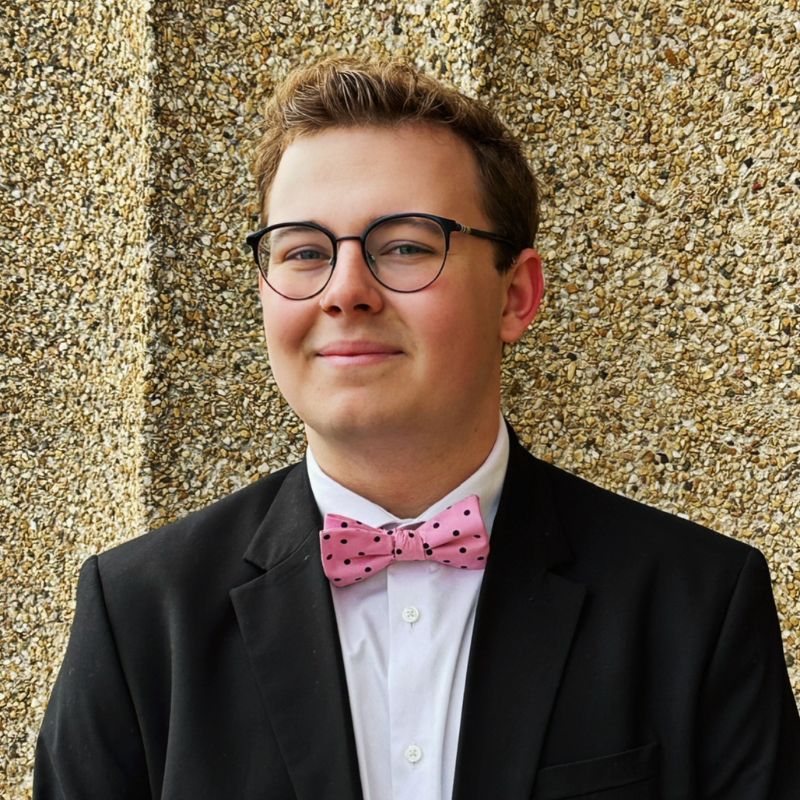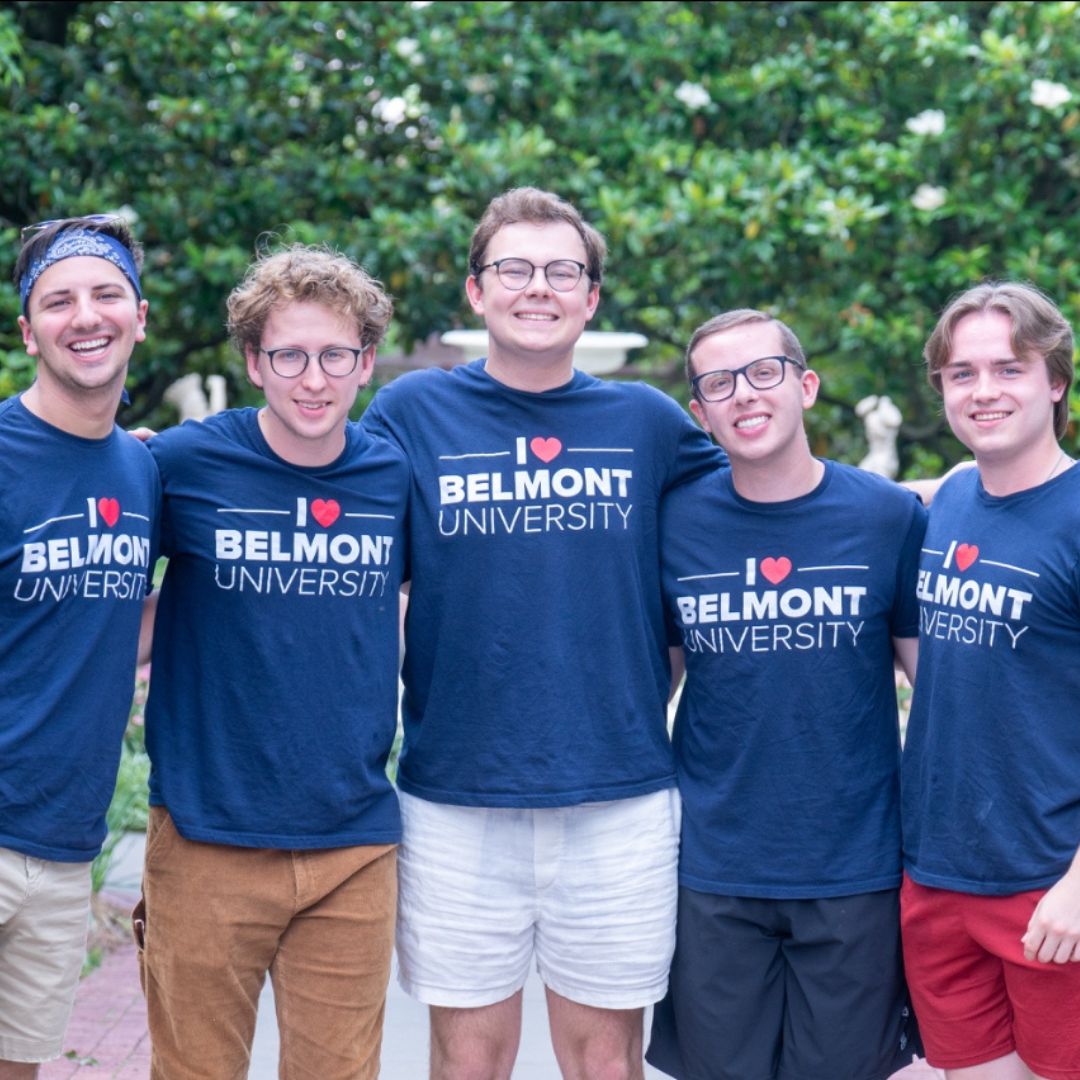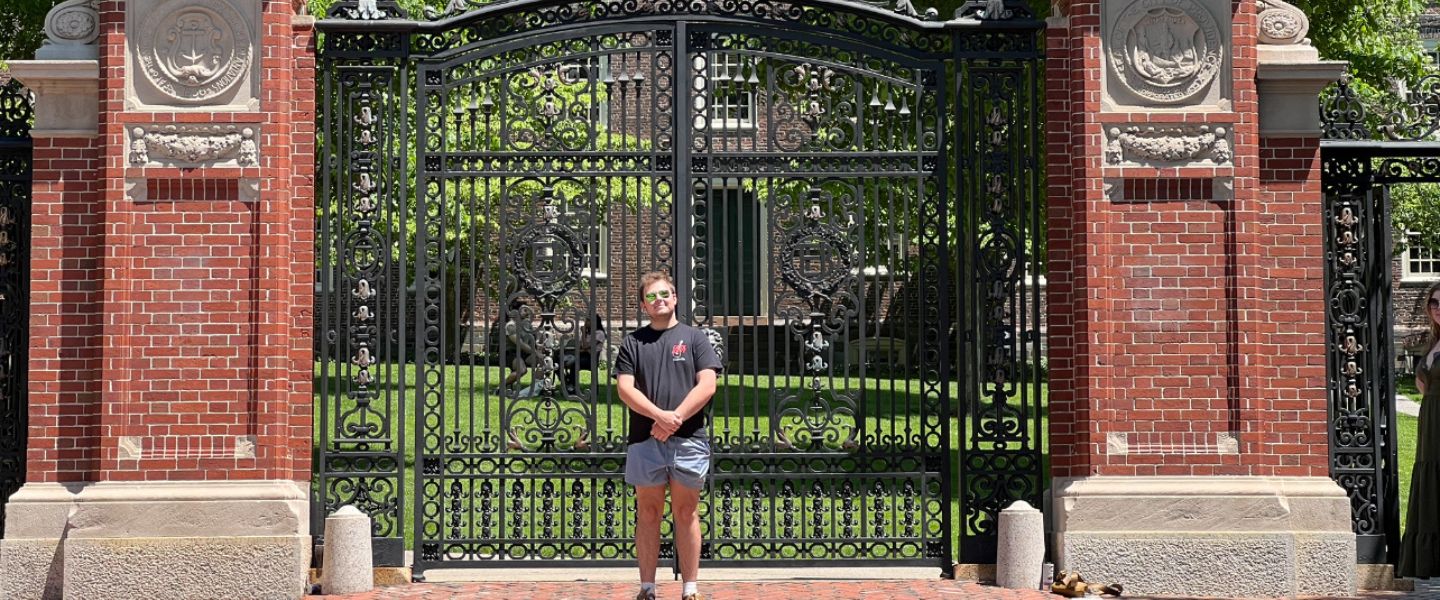Belmont Senior Alex Greve's Mission to Educate Others on Technology Adoption
Growing up in Arlington, Texas, rising senior Alex Greve would take apart the family computer and rebuild it, much to his parents’ dismay, purely out of interest. It only made sense that his early fascination with technology led to Greve pursuing a computer science degree at Belmont with an eye fixated on technical education.
Greve took his first computer science class in high school, and according to him, it was the first class where the homework did not feel like homework — it was interesting, dynamic and engaged a different part of his brain than his math or science classes did.
 When it came time to apply for colleges, computer science was only one of two passions Greve was interested in exploring at the university level. Given that audio engineering was another strong contender, Belmont was the most appealing university candidate among the 12 other computer science schools he applied to. Belmont was the first school he toured, and from the moment he stepped onto campus, he was hooked.
When it came time to apply for colleges, computer science was only one of two passions Greve was interested in exploring at the university level. Given that audio engineering was another strong contender, Belmont was the most appealing university candidate among the 12 other computer science schools he applied to. Belmont was the first school he toured, and from the moment he stepped onto campus, he was hooked.
Music became a hobby rather than a career pursuit for Greve while at Belmont. Computer science and the overall evolution of technology became the focal point of his education, internship and research experiences.
“I love the small class sizes and how individualized classes are structured at Belmont,” Greve said. “You are seen as a person, not just a number. I also feel like professors at some larger schools are there to research and only teach because they have to. At Belmont, professors are there because the love to teach and want to see student learn.”
Throughout his classes and general observation, two key elements regarding the world of advancing technology stood out to Greve above all else — the integration of technology into everyday tasks and the resistance of some to adopt the latest industry trends out of fear or intimidation.
“I feel like before the release of ChatGPT in early 2023, computer science and its adjacent fields were viewed as very separate worlds from everything else," Greve explained. “But now, with the emergence of learning language models, people are starting to realize how cool computer science, artificial intelligence and tech is. People are realizing its use and it’s becoming more integrated into other disciplines.” 
Greve is passionate about technological education, specifically within grade school and higher education. After potentially attending graduate school himself, Greve aspires to work in a research lab for a large tech company such as IBM or Google where his research targets practical implementation of AI and other emerging tech in schools.
To bolster his research resume, Greve is interning with Brown University’s Research experience for Undergraduates program during the summer of 2024. Specifically, Greve is part of Brown’s Computer Vision and Machine Learning program that helps computers see and quantify how humans interact with the environment.
“Think in terms of Face ID on your phone or when get your face scanned by TSA at the airport,” he said. “Implications for this kind of technology span from virtual and augmented reality use to robotics to entertainment to surveillance.”
In addition to shaping his skillset and computer science knowledge, Greve credits Belmont for forming his passion for learning that he hopes to impart on others throughout his career.
“I wouldn’t be here today without Belmont, the SURFS program, the mentors that I’ve had and the support I received from my mentors and classmates,” he concluded. “I now love to learn and Belmont has taught me many different soft skills in addition to technical skills.”
Learn More
Learn more about Belmont's computer science program.

